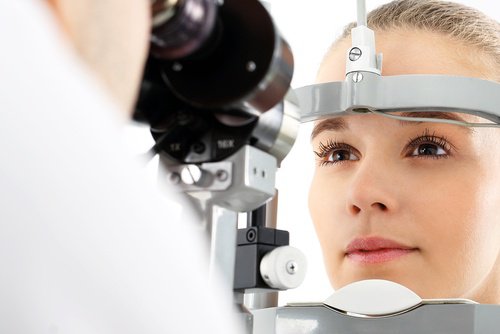5 Little-Known Symptoms of Diabetes

There are some little-known symptoms of diabetes that can help determine when it’s a good idea to see your doctor, outside of your regular checkups.
The United States National Library of Medicine points out that diabetes is an illness that occurs when the body is unable to regular blood sugar levels.
The National Institute of Diabetes and Digestive and Kidney Diseases explains the most common symptoms of this disease. These include thirst, numbness in the hands and feet, unexplained weight loss, and the need to urinate frequently. However, not all people that receive a diabetes diagnosis present common symptoms.
5 little known symptoms of diabetes
There are some symptoms that aren’t normally associated with diabetes but that can, however, indicate its presence.
Of course, if you present one of several of these symptoms, then you’re best off seeing a doctor. Only a professional can determine whether or not they have to do with diabetes or some other health problem.
Skin irritation
One of the lesser-known symptoms of diabetes appears when blood glucose levels exceed healthy values, leading to dry, itchy skin.
The itching can occur on the hands, arms, legs, and feet. So if your skin is irritated or itchy, make sure it isn’t caused by the weather. If not, get your blood sugar checked.
A study from Diabetology & Metabolic Syndrome points out that, while data is inconclusive, researchers have determined that diabetes can affect the skin. To be more specific, they state that it can produce ulcerations, dryness, and all types of irritation.
Dandruff or dry scalp

See also: Foods and Supplements for Dull and Dry Skin
While we haven’t found any specific studies on the subject, a 2005 study published in Revista de Saúde Pública suggests that poor metabolic control from diabetes can lead to the appearance of skin lesions caused by infections.
This provides the right conditions for the growth of the pityrosporum fungus, causing dandruff. This microorganism feeds off the scalp’s oils and can quickly spread in just a few days.
Snoring: One of the little-known symptoms of diabetes
A clinical trial that took place in China in 2017 evaluated the relationship between snoring and the presence of prediabetes. Of the 13.592 participants, almost 31% were diagnosed with prediabetes.
The results indicated that there’s a relationship between habitual snoring and their presence of blood sugar alterations. It’s believed that due to problems related to respiratory disorders while sleeping, like sleep apnea, blood sugar levels may go up.
While sleeping, you can release stress hormones that can significantly increase your blood sugar levels. For example, snoring occurs because of interruptions in breathing due to the relaxing of the muscle that constricts the airways. This could produce the release of stress hormones and, therefore, an increase in blood sugar.
Hearing problems: One of the little-known symptoms of diabetes
If you notice that you have to keep turning the volume up on the TV because it’s hard for you to hear or if you have to ask other people to repeat things a lot, tell your doctor. Several studies, like one from Current Diabetes Reports, have demonstrated that hearing loss can be a sign of diabetes.
People with high blood sugar are more prone to suffering from a hearing injury than those with healthy levels. That’s because very high levels can damage the nerves in the inner ear.
We recommend reading: Ringing in Your Ears: How to Reduce it with Your Diet
Vision changes

Despite not having found specific research on the subject, it’s worth noting that some people that unknowingly suffer from diabetes have undergone momentary improvements in their vision. In other words, they’ve stopped need glasses because they can see well without them.
When this happens, the improvement is not permanent. Once glucose levels are stabilized, the patient needs to wear corrective lenses again. Consult with a doctor about the issue.
Should I wait to see what happens or see a doctor as soon as possible?
These symptoms tend to be overlooked because they’re often associated with other illnesses. If you notice these changes, along with the common symptoms, you should see a specialist as soon as possible. That way, a professional can provide proper diasnosis and treatment.
It may not be a bad idea to see what happens with these symptoms for a short time. However, you shouldn’t put off seeing a professional for too long.
All cited sources were thoroughly reviewed by our team to ensure their quality, reliability, currency, and validity. The bibliography of this article was considered reliable and of academic or scientific accuracy.
- Chakrabarty, A., Norman, R. A., & Phillips, T. J. (2008). Cutaneous manifestations of diabetes. In Diagnosis of Aging Skin Diseases. https://doi.org/10.1007/978-1-84628-678-0_20
- Konrad-Martin, D., Reavis, K. M., Austin, D., Reed, N., Gordon, J., McDermott, D., & Dille, M. F. (2015). Hearing impairment in relation to severity of diabetes in a veteran cohort. Ear and Hearing. https://doi.org/10.1097/AUD.0000000000000137
- Horikawa, C., Kodama, S., Tanaka, S., Fujihara, K., Hirasawa, R., Yachi, Y., … Sone, H. (2013). Diabetes and risk of hearing impairment in adults: A meta-analysis. Journal of Clinical Endocrinology and Metabolism. https://doi.org/10.1210/jc.2012-2119
- Al-Delaimy, W. K., Manson, J. A. E., Willett, W. C., Stampfer, M. J., & Hu, F. B. (2002). Snoring as a risk factor for type II diabetes mellitus: A prospective study. American Journal of Epidemiology. https://doi.org/10.1093/aje/155.5.387
- MedlinePlus. Diabetes. https://medlineplus.gov/spanish/diabetes.html
- National Institute of Diabetes and Digestive and Kidney Diseases. Síntomas y causas de la diabetes. https://www.niddk.nih.gov/health-information/informacion-de-la-salud/diabetes/informacion-general/sintomas-causas
- de Macedo, G.M.C., Nunes, S. & Barreto, T. Skin disorders in diabetes mellitus: an epidemiology and physiopathology review. Diabetol Metab Syndr 8, 63 (2016). https://doi.org/10.1186/s13098-016-0176-y
- Revista de Saúde Pública. Print version ISSN 0034-8910On-line version ISSN 1518-8787. Rev. Saúde Pública vol.39 no.4 São Paulo Aug. 2005. http://dx.doi.org/10.1590/S0034-89102005000400024
- Chin Med J (Engl). 2017 Apr 5; 130(7): 791–797. Association between Self-reported Snoring and Prediabetes among Adults Aged 40 Years and Older without Diabetes. doi: 10.4103/0366-6999.202741
This text is provided for informational purposes only and does not replace consultation with a professional. If in doubt, consult your specialist.








